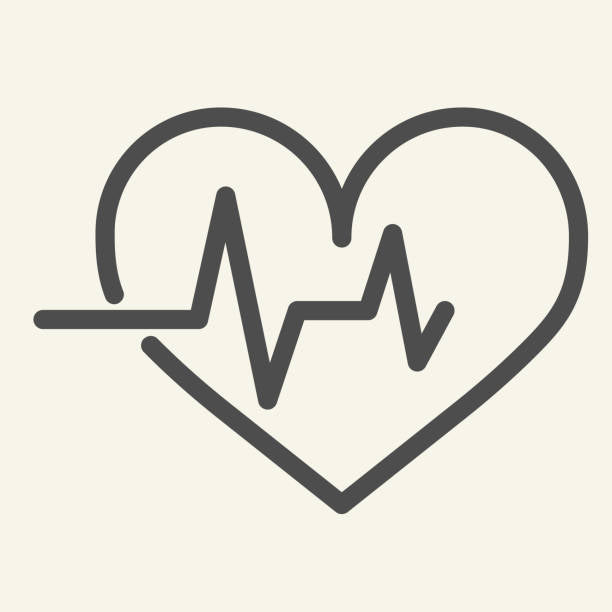
Protect Your Heart at Home: The Importance of Physical Self-Care for Cardiovascular Health
Share
In the modern world, heart disease continues to be the number one cause of death globally. Alarming, yes—but also largely preventable. What many people don’t realize is that some of the most powerful tools for protecting your heart aren’t found in a doctor’s office, a pharmacy, or even a gym. They’re found in your daily routine, your mindset, and your commitment to taking care of your body—especially at home.
The connection between physical self-care and heart health is undeniable. By integrating movement, mindfulness, and wellness practices into your daily life, you can significantly reduce your risk of developing cardiovascular problems. And the good news? You don’t need to leave your house to do it.
The Heart as the Center of Your Health
Your heart is more than just a muscle. It’s the engine of your body, the rhythm of your life. Every beat supports your brain, your organs, and your energy levels. It’s a 24/7 worker—tireless and essential. But like any engine, it needs maintenance, attention, and the right conditions to perform optimally.
Without proper care, the heart is vulnerable to a range of issues: high blood pressure, clogged arteries, irregular rhythms, and more. These conditions often develop silently over time, with no visible symptoms—until they become dangerous or even life-threatening.
That’s why prevention is everything. And it starts long before medication or surgery is needed. It begins with how you treat your body today.
Why Physical Self-Care Matters
Physical self-care isn’t just about looking good—it's about feeling strong, staying mobile, and protecting your long-term health. It includes the choices you make each day: how much you move, how well you sleep, how you manage stress, and how you nourish your body.
Taking time for yourself physically is a signal: “I matter. My body deserves respect.” This isn’t a luxury. It’s a necessity.
Physical self-care contributes directly to heart health by:
Supporting optimal blood circulation
Helping to regulate blood pressure and cholesterol
Reducing excess weight and abdominal fat
Managing blood sugar levels
Improving oxygen supply throughout the body
Lowering systemic inflammation
Easing anxiety and chronic stress
Each of these factors plays a critical role in either increasing or reducing your risk of cardiovascular disease.
The Hidden Risks of a Sedentary Lifestyle
One of the greatest threats to heart health today is inactivity. Most people spend long hours sitting—at desks, on couches, in cars. This sedentary lifestyle weakens the heart over time, slows down metabolism, and contributes to weight gain, insulin resistance, and high blood pressure.
You don’t have to be an athlete to avoid these risks. You simply need to avoid extended periods of inactivity. Movement in daily life, even at home, helps keep your heart engaged and resilient.
Home as a Space for Wellness
It’s a common myth that heart-healthy routines require a gym membership or intensive fitness programs. In reality, your home is one of the most powerful places to begin caring for your heart.
Here’s why:
1. Consistency Becomes Easier
When self-care habits are built into your home routine, they’re easier to maintain. There’s no need for travel, schedules, or appointments. You control the timing, pace, and environment.
2. Comfort Reduces Barriers
Many people feel intimidated or self-conscious in public exercise settings. At home, there are fewer psychological barriers. You can move in your own space, on your own terms, in whatever clothing or style feels right for you.
3. Mental Health Improves
Home-based routines offer more opportunities for relaxation and reflection. Combining physical activity with calm surroundings supports mental wellness, which is directly connected to heart health. Chronic stress, anxiety, and poor sleep are all known contributors to cardiovascular disease.
4. You Build Sustainable Habits
Small, manageable routines practiced regularly are more effective than intense efforts done sporadically. Building those habits at home ensures you can stay consistent even during busy periods, bad weather, or travel restrictions.
Physical Self-Care Is More Than Movement
While movement is crucial, caring for your physical self goes beyond that. It includes all the daily decisions that help your body function at its best. For heart health, this means:
Eating a balanced, heart-friendly diet, rich in fiber, healthy fats, and low in processed sugars
Getting quality sleep—chronic sleep deprivation has been linked to heart disease
Staying hydrated to support blood flow and organ function
Reducing alcohol intake and eliminating smoking
Creating moments of stillness to allow your body to reset
These habits work together. Movement improves sleep. Good sleep supports healthier food choices. A nourished body moves better. The circle is complete when all areas of self-care are aligned.
Emotional and Psychological Benefits
The act of caring for your physical health sends powerful messages to your mind. It builds self-trust, resilience, and a sense of control over your own well-being. This is especially important in preventing the emotional burnout that can come from stress, illness, or long-term sedentary habits.
Moreover, when you feel better physically, your mental clarity improves. Your motivation grows. You feel more confident and energized. This positive spiral contributes to a lifestyle that naturally protects your heart.
Who Benefits? Everyone.
No matter your age, gender, or current fitness level, taking care of your body matters. And it’s never too late to start. Even small changes can yield big results.
For young adults, it sets the foundation for a strong and stable cardiovascular system.
For middle-aged individuals, it helps counteract the early effects of aging, stress, and work-life imbalance.
For seniors, it maintains independence, improves circulation, and reduces the risk of cardiac events.
The heart is forgiving. Give it what it needs, and it responds with strength, endurance, and gratitude.
A Culture Shift Starts at Home
When you prioritize physical self-care, you become a role model—especially for the people you live with. Children learn from what they see. Partners become inspired by your consistency. Even your social circle can benefit from your example.
By transforming your home into a space where health is supported and celebrated, you’re not just protecting your own heart. You’re creating ripple effects that can change lives.
Final Thoughts: Prevention Is the Best Medicine
The most effective way to fight heart disease is to prevent it before it starts. And the best prevention isn’t a pill—it’s a lifestyle. It’s a choice, repeated each day, to treat your body with care, intention, and love.
You don’t need to be perfect. You just need to begin.
Your home is not a barrier—it’s your starting point. Your body is not an obstacle—it’s your ally. And your heart? It’s waiting. For you to show up. For you to move. For you to care.
Your strongest self is already inside you. Let it beat freely. Let it live fully. One healthy choice at a time.
